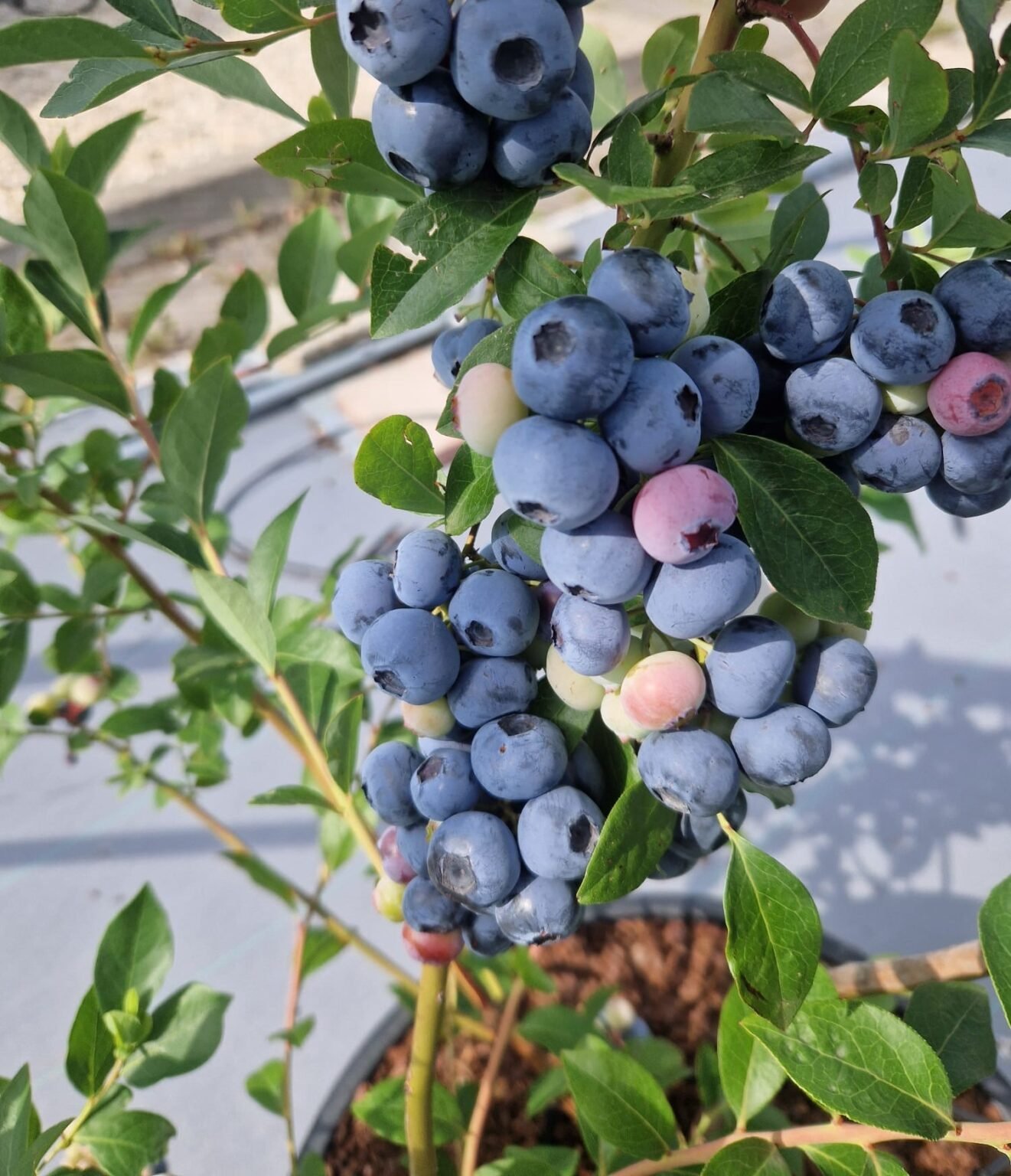Thursday, 26 February 2026
The James Hutton Institute introduces UK’s first bred blueberry
The new berry has been successfully trialled in the UK and the EU, constantly performing well across multiple seasons and diverse conditions The James Hutton Institute is delighted to announce…

The new berry has been successfully trialled in the UK and the EU, constantly performing well across multiple seasons and diverse conditions
The James Hutton Institute is delighted to announce that it has successfully bred the UK’s first blueberry at its Invergowrie site.
Highland Charm is the result of 10 years’ research at the Hutton’s breeding programme, during which more than 300 unique blueberry crosses have been made and evaluated to find a selection bred from the native North American species (Vaccinium corymbosum) that can flourish in the Scottish climate.
Blueberry breeder, Dr Susan McCallum, said, “This cultivar is a real standout. It combines high yields, excellent fruit size, outstanding flavour, with a balanced sugar-acid profile and a satisfying bite, and an impressive shelf life.
“It is reliable and has performed well in our trials year after year, with consistent yield, size and taste. Growers are excited about it.”
The new berry has been successfully trialled in the UK and the EU, constantly performing well across multiple seasons and diverse conditions. Researchers are now exploring how the cultivar fares under different growing conditions and with reduced input systems, aligning with the industry’s goals for sustainability and efficiency.
The Hutton is an internationally renowned research centre whose breeding programme supports the entire fruit supply chain from growers to marketing organisations and retailers. The soft fruit group works extensively with stakeholders to carry out research proposals to address specific and targeted needs of the sector, using marker-assisted breeding to reduce the time it takes to produce cultivars with the key traits of interest.
It addresses challenges facing the industry, including improved means for pest and disease control that are in line with increasing demand for reduced pesticide use in agriculture, resistance to climate change and the rising cost of production.
Technology
Deakin University and Bellarine Foods Partner to Develop Sustainable Marine-Derived Proteins
Feb 26, 2026 | Australia
Royal Unveils Refreshed Jute Bag Design for 20lb Authentic Basmati
Feb 25, 2026 | Company News
Australian Medical Bodies Push for Compulsory Health Star Labelling
Feb 24, 2026 | Australia
Food Testing
Australian Medical Bodies Push for Compulsory Health Star Labelling
Feb 24, 2026 | Australia
Tim Hortons Singapore Secures Majlis Ugama Islam Singapura Halal Certification Ahead of Ramadan
Feb 23, 2026 | Company News
More Popular
UAE’s Cult Mochi Brand MOISHI Makes India Entry with CK Israni Group
Feb 26, 2026 | Company News
Roquette Launches Breakthrough Clean-Tasting Pea Protein Isolate
Feb 26, 2026 | Company News
Affron Saffron Attains First Stress Relief Claim by South Korean Ministry of Food and Drug Safety
Feb 26, 2026 | Company News





